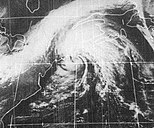Portal:New England
New England

In one of the earliest English settlements in North America, pilgrims from England first settled in New England in 1620 to form Plymouth Colony. Ten years later, the Puritans settled north of Plymouth Colony in Boston, thus forming Massachusetts Bay Colony. In the late 18th century, the New England Colonies initiated the resistance to the British Parliament's efforts to impose new taxes without the consent of the colonists. This confrontation led to open warfare in 1775, the expulsion of the British from New England in spring 1776, and the Declaration of Independence in July 1776.
Some of the first movements of American literature, philosophy, and education originated in New England. The region played a prominent role in the movement to abolish slavery, and was the first region of the United States to be transformed by the Industrial Revolution. Today, New England is a major world center of education, technology, insurance, and medicine. Boston is its cultural, financial, educational, medical and transportation center.
| More about New England... |
Selected article
Selected biography
Selected State
Incorporated 1791
Co-ordinates 44°N 72.7°W
Vermont is the 6th least extensive and the 2nd least populous of the 50 United States. It is the only New England state not bordering the Atlantic Ocean. Lake Champlain forms half of Vermont's western border, which it shares with the state of New York.
Originally inhabited by two major Native American tribes, much of the territory that is now Vermont was claimed by France during its early colonial period. France ceded the territory to the Kingdom of Great Britain after being defeated in 1763 in the French and Indian War. For many years, the nearby colonies, especially New Hampshire and New York, disputed control of the area. Settlers who held land titles granted by these colonies were opposed by the Green Mountain Boys militia, which eventually prevailed in creating an independent state, the Vermont Republic. Founded in 1777 during the Revolutionary War, the republic lasted for fourteen years. Vermont is one of seventeen U.S. states (along with Texas, Hawaii, the brief Republic of West Florida, and each of the original Thirteen Colonies) to have had a sovereign government in the past. In 1791, Vermont joined the United States as the 14th state, the first outside the original 13 Colonies. It abolished slavery while still independent, and upon joining the Union became the first state to have done so. (Full article...)
Selected picture
Did you know?
New England 1
New England 2
New England 3
New England 4
New England 5
New England 6
New England 7
New England 8
New England 9
New England 10
Categories
Topics
Related portals
WikiProjects
Associated Wikimedia
The following Wikimedia Foundation sister projects provide more on this subject:
-
Commons
Free media repository -
Wikibooks
Free textbooks and manuals -
Wikidata
Free knowledge base -
Wikinews
Free-content news -
Wikiquote
Collection of quotations -
Wikisource
Free-content library -
Wikispecies
Directory of species -
Wikiversity
Free learning tools -
Wikivoyage
Free travel guide -
Wiktionary
Dictionary and thesaurus















